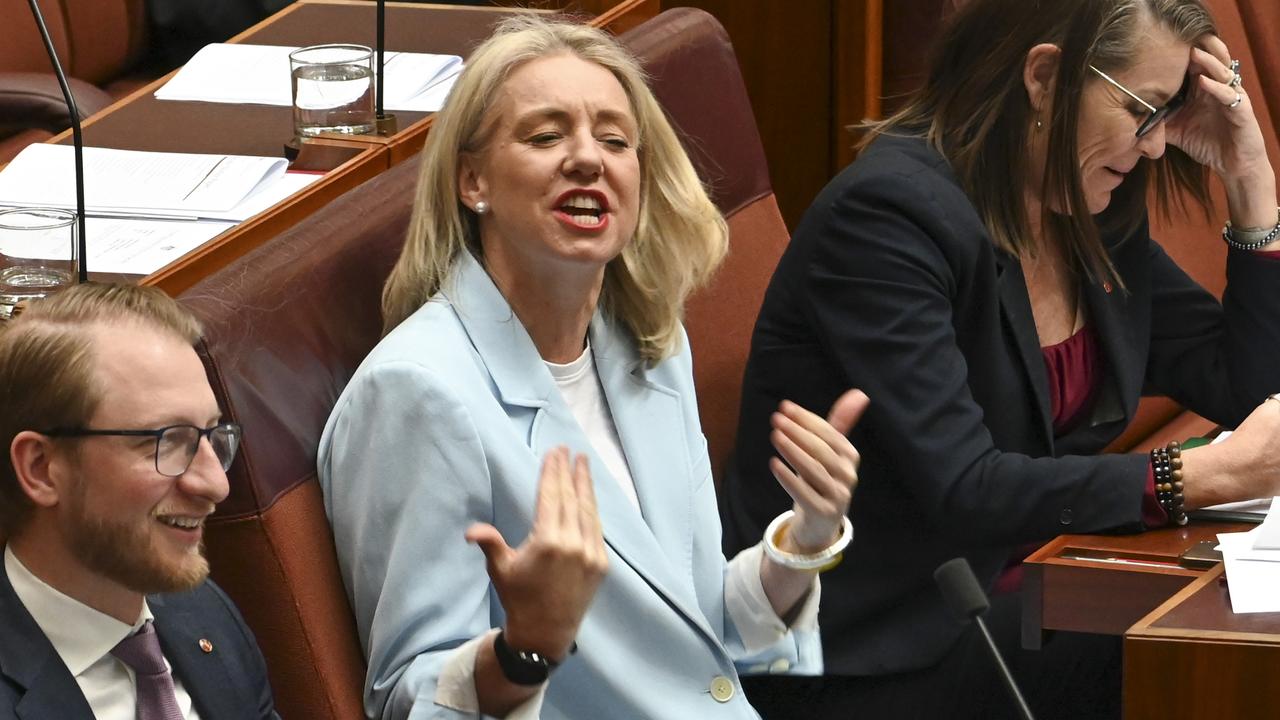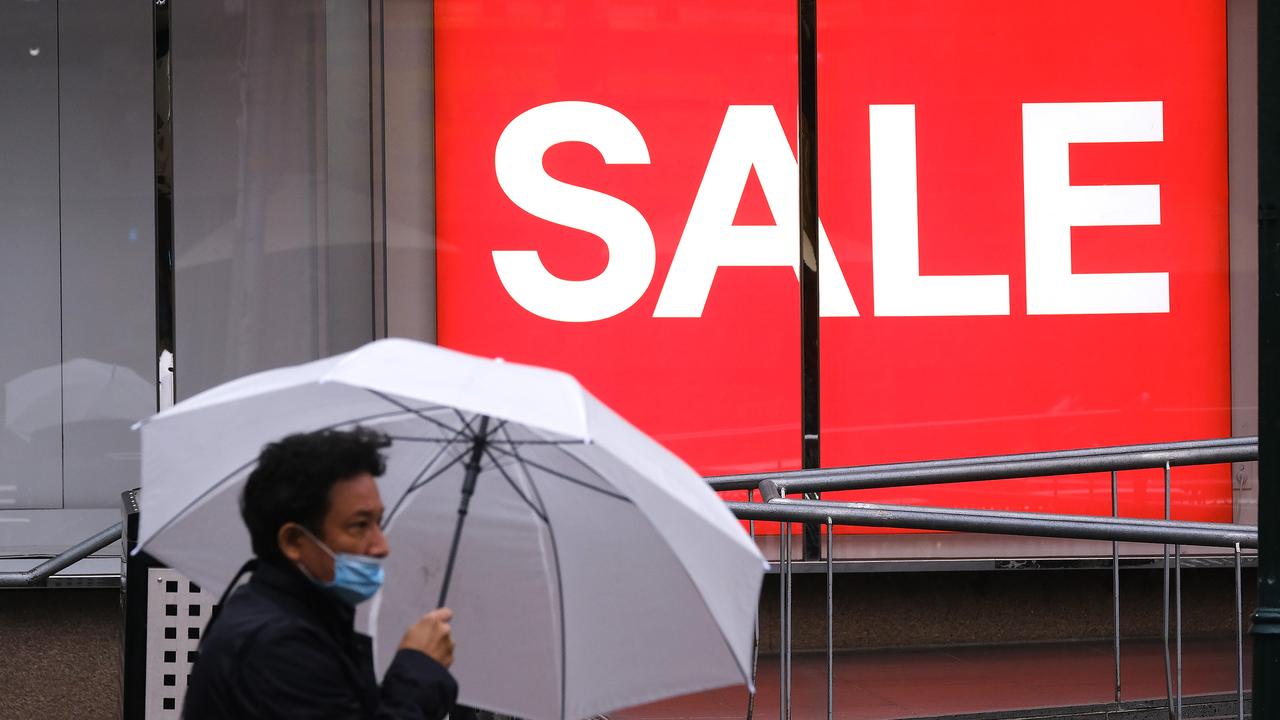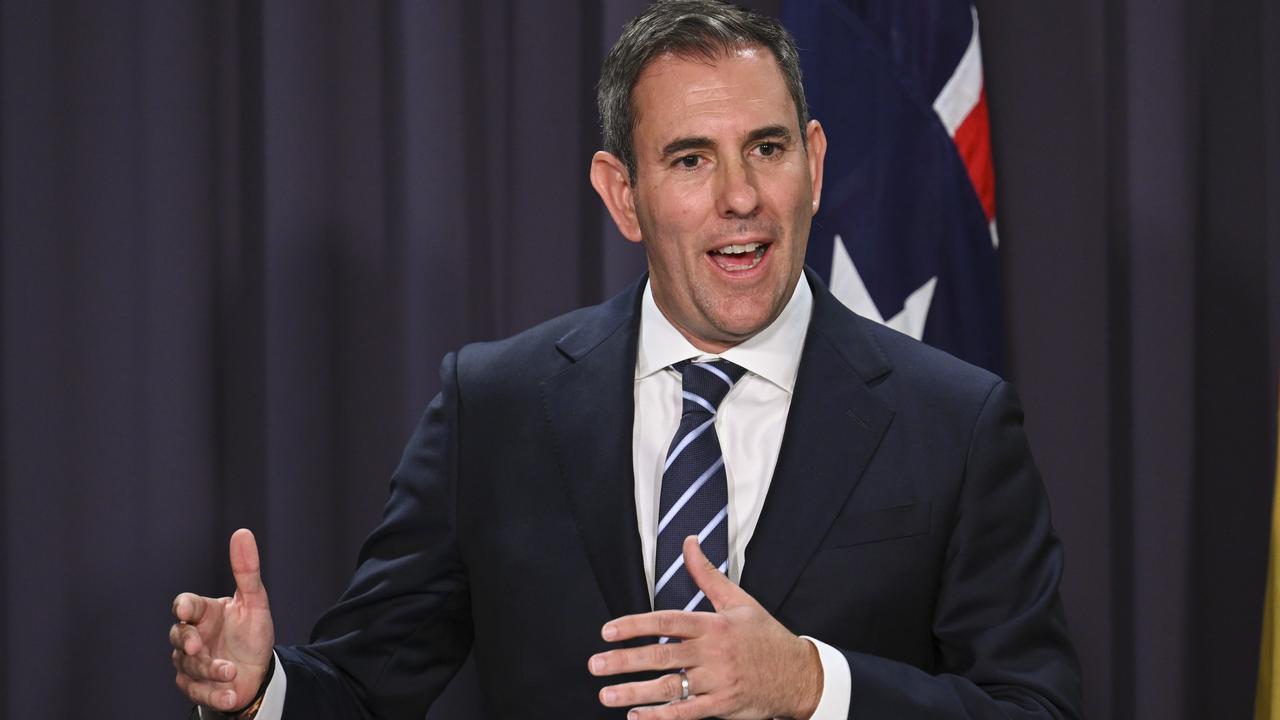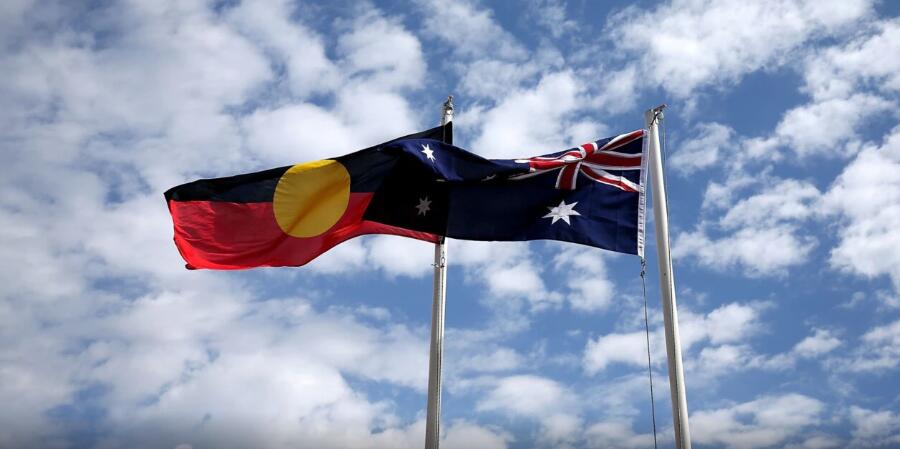The Albanese government’s crackdown on card surcharges is “like fiddling around the edges while Rome burns”, Coalition infrastructure spokeswoman Bridget McKenzie says.
The consumer watchdog is getting an extra injection of federal cash to clamp down on excessive purchase surcharges, which cost Australians nearly $1bn per year.
But the move, hailed by the government as part of broader efforts to ease cost of living, will just kick the can down the road, according to Senator McKenzie.

Senator Bridget McKenzie says the Albanese government’s action on card surcharges is ‘like fiddling around the edges while Rome burns’. Picture: NewsWire / Martin Ollman
“We know that someone’s actually going to end up having to pay for the cost of taking the payment,” she told Nine on Tuesday.
“Now, this government hasn’t met a corporation they don’t want to protect.
“And this latest thought bubble, they’re protecting the banks. They’re protecting Visa and MasterCard.
“And it’s our small businesses, our cafes, our pubs and our customers that are actually going to end up paying more because the surcharge will just mean higher prices in the end because the cumulative impact of all of these little changes, these little one percenters, mean that businesses’ margins are being squeezed and they’re going bust.”
Senator McKenzie’s remarks came after the government said it was directing an additional $2.1m to the Australian Competition and Consumer Commission (ACCC) to analyse excessive surcharges and report back while the RBA reviews the complicated surcharge ecosystem.
Announcing the plan, Prime Minister Anthony Albanese and Treasurer Jim Chalmers said they were prepared to ban debit card surcharges from January 1, 2026, subject to the design of “safeguards” and work from the Reserve Bank.
“Consumers shouldn’t be punished for using cards or digital payments, and at the same time, small businesses shouldn’t have to pay hefty fees just to get paid themselves,” Mr Chalmers said.

Banks and payment service companies dictate the surcharge fees. Picture: NewsWire / Luis Enrique Ascui
Legally, a business has to include the surcharge in the display price if it does not offer a way to pay without the surcharge, ACCC rules state. So if a cafe charges $5 for a coffee but does not accept cash, it can be fined for not properly advertising the coffee to include the surcharge amount.
Businesses have the right to pass on the extra fee they incur for processing a customer’s payment, but they cannot make a profit from it.
An ongoing RBA review is assessing what costs small businesses face when processing payments. This additional ACCC funding is looking at where excessive surcharges are being applied.
“This is all about getting a better deal for consumers, reducing costs for small businesses and promoting a more competitive payments system,” Mr Chalmers said.

Treasurer Jim Chalmers says debit card surcharges should be banned. Picture: NewsWire / Martin Ollman
“We’re prepared to ban debit card surcharges, subject to further work by the Reserve Bank and safeguards to ensure small businesses and consumers can both benefit from
lower costs.”
The Reserve Bank has calculated Australians paid $960m in surcharges last year.
The UK and the European Union have banned card surcharges.
Large businesses typically do not pass on the surcharge, but smaller businesses have finer margins.
Mr Albanese said this was “another step to protect Australians” struggling with the cost of living.
“That’s why we have announced this additional funding for the ACCC while we wait for further work by the Reserve Bank of Australia,” he said.

Small businesses are typically forced to pass on the surcharge fee to consumers. Picture: NewsWire / Max Mason-Hubers
In Australia, most consumers can actually save money by inserting or swiping their debit card so the payment is processed on the cheaper eftpos network rather than tapping and copping the more expensive MasterCard or Visa fee.
Eftpos transactions cost a business on average 0.3 per cent (30 cents in every $100) versus 0.5 to 1 per cent on a Visa or MasterCard debit.
The banks and payment service providers charge businesses different flat rates. Renting the actual payment machines comes into the mix for those payment service providers too.
Financial Services Minister Stephen Jones said cracking down on surcharges would give small businesses and consumers “a fairer go”.
“The surcharges pile up and punch a big hole in the wallets of customers and the takings of small businesses owners,” he said.


Leave a Reply